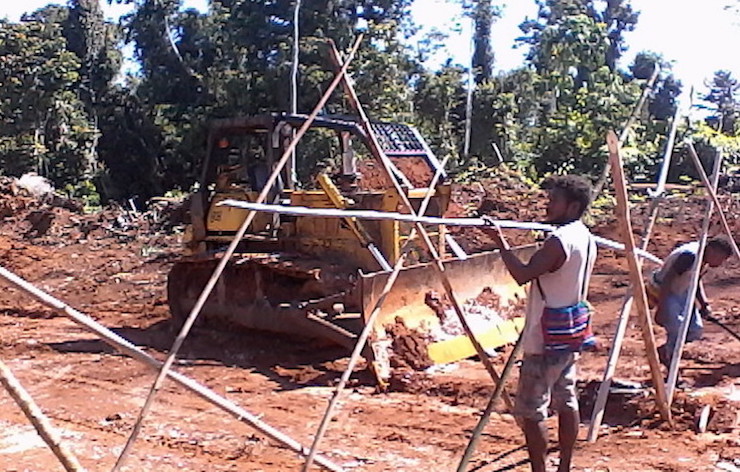
The government still has plenty of work to do to redress the injustice of the SABL land grab and illegal logging.
ACT NOW! is cautiously optimistic the government is moving in the right direction by cancelling the SABL leases, but this is only a first step.
“We welcome statements from the Minister for Lands that the government has cancelled all SABL leases; if it is true, it is a significant move”, says Program Manager Effrey Dademo.
“However, after nearly four years of delay, there are other vitally important steps that still have to be taken to ensure justice for rural communities.”
First, the Police Commissioner must ensure all police personnel are immediately withdrawn from SABL areas and they stop arresting and intimidating local people who are only trying to peacefully defend their land against illegal occupation and damage.
“This is especially urgent in Pomio district”, says Ms Dademo. “There we have a long documented history of police violence against local people that is still continuing. This is even though the Lands Minister has said clearly and unequivocally, it is the logging and oil palm companies who are illegally occupying the land. It is the companies who should be ordered off the land or face arrest”.
Second, the Minister for Forests and PNG Forest Authority need to confirm that all logging operations in SABL areas have been permanently halted and all Forest Clearance Authorities issued for SABL areas have been cancelled.
Thirdly, the Attorney General needs to announce plans for assessing the compensation due to customary landowners who have been unlawfully deprived of the use of their land and, in some cases, have seen their forests destroyed and suffered extensive environmental and economic losses.
Finally, there must be no further attempts by the government to alienate customary land using Voluntary Customary Land Registration or any other legal mechanisms.
“The SABL saga is far from over”, says Ms Dademo. “There must be a comprehensive approach by the government to ensure all abuses are ended and landholders are compensated for their losses”.
- ACTNOW's blog
- Log in to post comments
